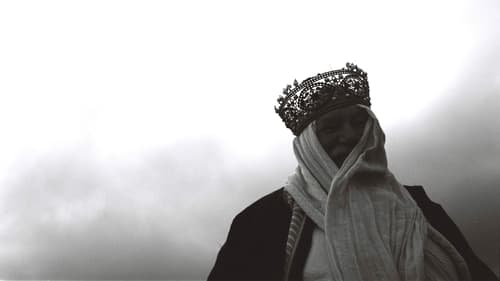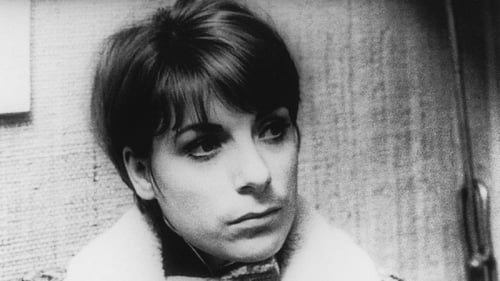The Invader (2011)
Genre : Drama
Runtime : 1H 35M
Director : Nicolas Provost
Synopsis
An African immigrant living illegally in Belgium is desperate to find his own sense of belonging.

A businessman goes home during the working day to change his trousers having spilled coffee on himself. When he arrives in the underground garage below his apartment block he finds a car on fire with a dead man inside. He also finds himself being filmed. He takes the video upstairs to his home and watches a man do ordinary things like shave etc before covering himself in petrol and setting himself and his car alight. Procter becomes a driven man as he tries to unearth what drove this person to kill himself in such an unusual manner. By Joachim Trier.

a film by Apichatpong Weerasethakul

This small film came out of the material edited for Sokurov's five-hour documentary Spiritual Voices.

This documentary offers a rare glimpse of the legendary Soviet filmmaker, Andrei Tarkosvky, at work. Tarkovsky made only seven films in his brief, but brilliant, career; Michal Leszczylowski's respectful movie chronicles him at work on his last film, The Sacrifice. Offering insight into Tarkovsky's working methods and transcendental aesthetics, the movie is a compelling account of the difficulties of film production. In the case of an uncompromising and visionary filmmaker like Tarkovsky, the practical problems of filmmaking are only magnified, as cast and crew struggle to realize the ambitious concepts in Tarkovsky's mind.

Focuses on a boy as he discovers love and comes to face the morality of his family. The film speaks of this through a web of oblique details, attempting to capture the flesh of relations and, perhaps, the very tension of being...

Slow Action, Ben Rivers’ first exhibition at Matt’s Gallery, is a post-apocalyptic science fiction film that brings together a series of four 16mm works which exist somewhere between documentary, ethnographic study and fiction. Continuing his exploration of curious and extraordinary environments, Slow Action applies the idea of island biogeography - the study of how species and eco-systems evolve differently when isolated and surrounded by unsuitable habitat - to a conception of the Earth in a few hundred years; the sea level rising to absurd heights, creating hyperbolic utopias that appear as possible future mini-societies. This series of constructed realities explores the environments of self-contained lands and the search for information to enable the reconstruction of soon to be lost worlds.

Manivald is a fox in his early 30s. He is still living at home with his mother. One day a young hot wolf called Toomas comes to fix the washing machine. A love triangle develops between the three of them. Things get out of hand and Manivald realizes that it is time to move out.

An unknown observer is seen traveling through a bleak corridor. At the end of the corridor they see a naked woman, whom they are unable to reach as their trip seems to become increasingly twisted and looped.

A man goes to see his former schoolmate working at a boiler house and persuades him to burn in the furnace the corpse of his communal flat neighbor whom he has just murdered after a quarrel. An orphaned girl gets a job in the archives of the maternity home to find out the identity of her mother who abandoned her years earlier. She finds her, befriends her and takes the first opportunity to throw her into the sea. An old intellectual tries to explain to the neighbor’s five-year-old daughter “all the abomination of her lumpen existence”. The girl feeling hurt for her mother decides to poison the old man with arsenic.

A fragmented road trip through Britain on the peripheries. Down empty roads, off in the wilderness, a few lone stragglers.

"Free Floating" is a melodrama with elements of comedy about a young lad from an ordinary provincial town like many in Russia, with just one kindergarten, one school, one factory. As a result, one grows up here never facing the alternative as to what to choose, for everything is preordained. Leonid is an ordinary lad who, like his peers, goes to discos, dances with girls and picks fights with the local riff-raff later. Everything is going well for him, as his life is totally predictable. But one day the factory closes down and he becomes disoriented. For the first time ever, he is to make a choice on his own and think seriously about what he would like to do...

The film tells about a band of demobilized Red Army men and two civilians who cross a Middle Asian desert. They are forced to do battle with superior forces of Basmachi rebels for the dry draw-well.

As with so many early films by Sokurov, this film has two dates: the first is the date of its creation (the film was then banned), the second is the date of the final edition and legal public screening. The film consists of German and Soviet archive footage of the World War II — to be exact, from the end of the war. An attempt to make a large–scale documentary on this subject had been undertaken in the Soviet cinema of the 1960s: the film — “Ordinary Fascism” — by the outstanding Soviet film–maker Mikhail Romm had become a classic retrospective investigation of fascism. But Sokurov uses the expressive power of the documentary image in an absolutely different way. He does not amass materials for a large–scale picture of Nazi crimes.

Experimental film following a bearded Scottish hermit as he goes about his outcast life.

A single mother is confused by the changes in her teenage son, who has become distant since spending summer vacation with his father.

Herman is a rat who lives alone in his messy apartment. One day a very tidy cat decides to move in.

The Three Wise Kings travel in search of the Messiah, with unexpected obstacles on the way.

Rainer Werner Fassbinder was probably Germany’s most significant post-war director. His swift and dramatic demise at the early age of 37 in 1982 left behind a vacuum in European filmmaking that has yet to be filled, as well as a body of unique, multi-layered and multifarious work of astonishing consistency and rigour. From 1969 onwards, Danish director and film historian Christian Braad Thomsen maintained a close yet respectfully distanced friendship with Fassbinder. Fassbinder – Lieben ohne zu fordern is based on his personal memories as well as a series of conversations and interviews he held with Fassbinder and his mother Lilo in the 1970s.

In the Andes, a Belgian doctor and his photojournalist wife become ensnared in a native tribe's struggle with a mining company.

A young circus director ends up going into television after her father, a trapeze performer, dies in a circus accident.














